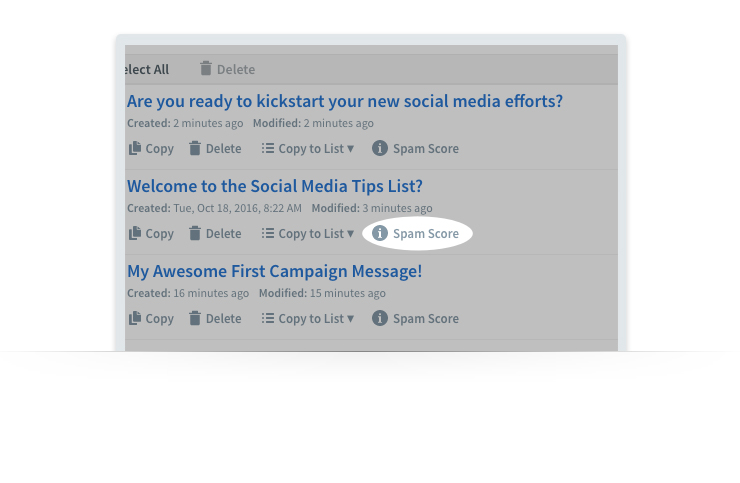
Email subject line rule #1: advanced personalization
The following emails arrived in my inbox during a 24-hour window.- Expedia.ie: "Marijana - (1) new message: We owe you flight deals under 150 from your home airport"
- Eventbrite Picks: "Marijana's Weekly Event Guide"
- Just Eat Ireland 2: "Marijana, fancy finding a new flavour?"
- Collision: "Time is running out, Marijana⌛"
- parkrun Ireland News: "Marijana, your weekly dose of parkrun positivity!"
- mytaxi: "Marijana, upgrade your profile to a business account!"
- Ask questions on your sign up form. Then use that information in your email subject lines. For example, if you write a fashion blog, you can ask your subscriber for his or her favorite color when they sign up to your mailing list. Then, you can send them emails based off their color choice — like “15 gorgeous [color] dresses under $50.”
- Send location-based emails. Traveling to a conference? Speaking at an event? Meet up with your subscribers in different cities. “We’re in [city] next week! See you there?”
- Retarget subscribers. Did a subscriber abandon a product in his or her shopping cart? You could send an email like “Forget something? Here’s a 20% off coupon!” Or did a subscriber not follow through on an action, like registering for your webinar or workshop? Use that info to tailor their next message. “Only 12 hours to sign up for [event]!”
Email subject line rule #2: directness
Skip the wit, wordplay, humor, rhymes, or puns in your subject lines.* Stick with straightforward headlines instead. These “boring” subject lines convert extremely well. That’s because they explain the value inside the email. The readers know exactly what to expect from the message and the benefits they’ll receive from opening it. In fact, here at AWeber, we analyzed our subject line data and found that direct subject lines outperform the more creative ones by an average of 541%. Here are some examples of straightforward email subject lines:- “[Company] Newsletter: July”
- “Exclusive workshop invitation from [Brand]”
- “Our 10 Most Popular Biceps Workouts”
- “The best brownie recipe you'll ever taste."
Email subject line rule #3: FOMO
Fear of missing out — FOMO — is a powerful psychological driver of email opens and engagement. Email subject lines that create a sense of urgency, scarcity, and exclusivity can boast a 22% higher open rate, according to the Email Institute. We recently used this technique for our launch of 24/7 Email Marketing Master Class.- Liz from AWeber: "You have one day left to sign up for Master Class!"
- Beyond the Podcast Summit: "750+ podcasters in the Facebook community. Join them!"
- Your [offer] ends at midnight
- Today only: order your favorites with free shipping
- You’re missing out on [offer]
- Only 20 spots left at [price]
- Urgent: Your subscription is expiring
- This weekend only! Get [offer] before it’s gone!
Email subject line rule #4: curiosity
There’s a reason most television season finales end with cliffhangers: Humans crave nice-and-neat endings. So when you don't give it to them, they're unsettled. They have to know what happens next, and they’ll tune in the next season for closure. Use this craving to your advantage. Fuel your subscribers to open your emails by injecting curiosity into your subject lines. You can ask a question:- Jo at Copy Hackers: "Are you missing these 3 copy techniques?"
- Men's Health Daily Dose: "Will Creatine Boost Your Gains?"
- Jessica Stansberry: "You should be going live ___ times per month! [open for the answer]"
- Sophie Gray: "This is the ONLY Reason You Should Workout"
- AWeber Blog: "We made free summer GIFs for you!"
- Chubbies: "Sincerely, future Dwight"
- Really Good Emails: "Emails can be tasty "
Email subject line rule #5: character length
How long should your email subject line be? No one can agree. Litmus recommends around 50 characters. Yes Lifecycle Marketing says emails with subject line up to 20 characters have ethe highest average open rate, unique click rate, and click-to-open rate. An analysis from Retention Science found that subject lines with 6 to 10 words results in the highest open rates. And Return Path advises using 61 to 70 characters. So in reality . . . it depends. (Sorry, I know that’s no one’s favorite answer.) Every industry is different. But here are some important things to keep in mind when you’re testing various subject line lengths — no matter what industry you’re in:- Do most people open your emails on desktop or mobile? If it’s the latter, aim for short email subject lines (35 characters or less).
- Is your preview text cut off? If so, will your subject line still make sense without it?
- Are there words you can cut to be more concise or clear?
- Is your message clear and direct?
Email subject line rule #6: spam triggers
Email spam filters are triggered by specific words, phrases, and symbols in your subject line and email content. AWeber uses a content filtering tool called SpamAssassin™ to help you avoid content filtering. This tool is widely used by ISPs to filter incoming email. By clicking on that score you can instantly view the content in your messages that are triggering the SpamAssassin™ ruleset. So what some words, phrases, and symbols that are red flags to spam filters? Here's a list:
By clicking on that score you can instantly view the content in your messages that are triggering the SpamAssassin™ ruleset. So what some words, phrases, and symbols that are red flags to spam filters? Here's a list:
- Excessive punctuation like multiple exclamation points!!!!!!! or ellipses ……...
- TYPING IN ALL CAPS
- Symbols like “$$$” and “*****”
- Phrases like “cheap,” “cash off,” “incredible deal,” “satisfaction,” “winner”
Email subject line rule #7: emojis
In a busy inbox, an emoji can stand out. In fact, emojis may increase your open rates by 56%, reports Experian.- AWeber Blog: "Why you need a hook 🎣"
Your Takeaways
There's no single formula for writing perfect subject lines. But if you mix-and-match these 7 subject line rules, you'll be able to optimize your open rates over time and come up with a formula that works extremely well with your audience.- Use personalization in your subject lines. Variations of “Hello {!firstname_fix}” are fine, but take it a step further with segmentation. That way, you can send highly targeted emails to an engaged audience.
- Be straightforward. It can be tempting to be witty or punny in your subject lines, but until you have the trust of your audience and consistently high open rates, stick with directness instead.
- Tap into a subscriber's FOMO. Create a sense of urgency, scarcity, and exclusivity in your subject lines.
- Give readers a cliffhanger. Play into their curiosity. Make them want to open to find out the answer!
- Test different character lengths. Short, long, somewhere in between — see what works best with your audience (and looks the best on mobile!).
- Avoid spam triggers. Keep a list of common words, phrases, and symbols that get stuck in spam filters, and use an ESP like AWeber that gives you a Spam Score for every message.
- Be careful with emojis. You can use them to shorten email subject lines or to pack a punch — but make sure your audience actually likes them . Test subject lines with and without them.
The post Your Guide to Writing the World’s Best Email Subject Lines appeared first on Email Marketing Tips.
from Email Marketing Tips https://ift.tt/2KMWbOR



No comments:
Post a Comment